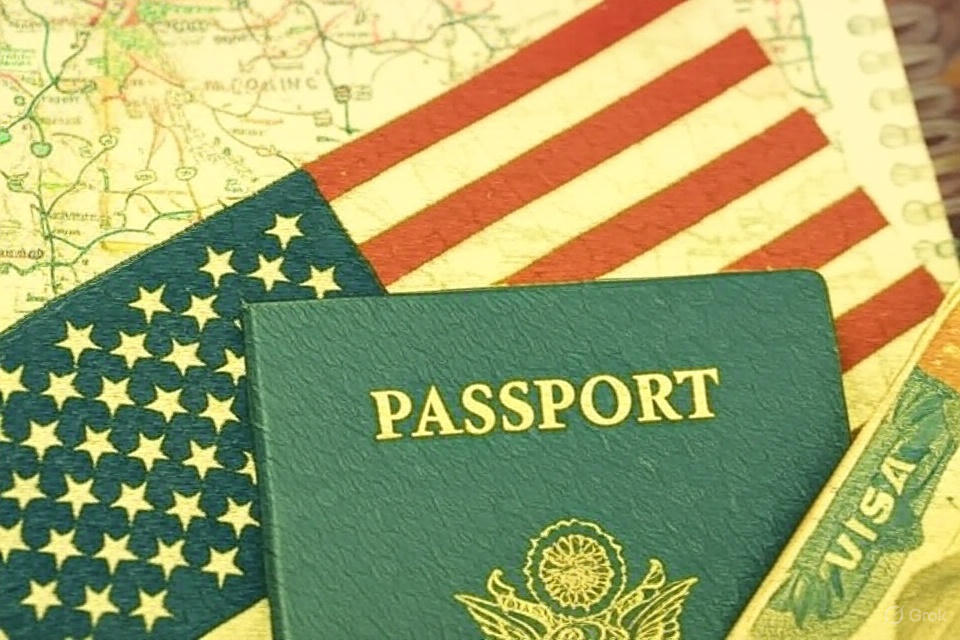U.S. Passport Falls Out of Top 10 for the First Time in History
In a surprising turn for global mobility, the U.S. passport has dropped from the top 10 in the Henley Passport Index for the first time in its 20-year history. According to the latest data, the United States now ranks 12th, tied with Malaysia, offering visa-free access to 180 countries.
This shift has captured international attention, reflecting broader geopolitical trends and the evolving dynamics of travel freedom worldwide.
🇺🇸 U.S. PASSPORT FALLS FROM TOP 10 FOR FIRST TIME
— Mario Nawfal (@MarioNawfal) October 16, 2025
The U.S. passport just got its first reality check in 20 years, tumbling to 12th place (tied with Malaysia) with access to 180 visa-free destinations.
A humbling slide from its 2014 throne.
The decline stems from Trump… https://t.co/vY6Yqsud1s pic.twitter.com/4RaBKNmyta
Reasons Behind the Decline
Several factors contributed to the U.S. passport’s slide:
- Previous U.S. Immigration Policies: Restrictions under the Trump administration, including visa bans for 12 countries in Africa, the Middle East, and Southeast Asia, and limitations for seven additional nations, triggered reciprocal restrictions from other countries.
- Loss of Reciprocity with Brazil: In April 2025, Brazil ended visa-free access for U.S. citizens due to a lack of mutual agreements.
- Exclusion from Expanding Visa Programs: While countries like China and Vietnam have expanded visa-free access to multiple nations, the U.S. was notably excluded.
Experts argue that these policy decisions, combined with inward-looking international stances, contributed to the U.S. passport’s reduced global standing.
Current Top Rankings
The Henley Passport Index 2025 highlights a shift in global travel power:
- Singapore – 193 destinations
- South Korea – 190 destinations
- Japan – 189 destinations
Meanwhile, the least powerful passports remain: Afghanistan (24 destinations), Syria (26), and Iraq (29). This wide gap underscores the importance of diplomatic relations and reciprocal agreements in global mobility.
Historical Context and Implications
The U.S. passport once topped the index in 2014. Since then, it gradually declined:
- 2014: 1st place
- 2024: 7th place
- July 2025: 10th place
- October 2025: 12th place
This decline may impact Americans by increasing the number of required visas and complicating international travel planning. Conversely, countries such as Singapore, South Korea, and Japan are gaining influence through proactive diplomacy, economic engagement, and strategic visa policies.
As global travel rebounds post-pandemic, these rankings remind us that passport strength is not permanent—it reflects a nation’s global engagement and reciprocal relationships.
FAQs
Q1: Why did the U.S. passport drop in the Henley Index?
A1: Policy decisions, loss of reciprocity with certain countries, and exclusion from expanding visa programs contributed to the decline.
Q2: Which passport is the most powerful in 2025?
A2: Singapore holds the top spot with access to 193 visa-free destinations.
Q3: Does this affect U.S. citizens traveling abroad?
A3: Yes, Americans may need more visas and face additional travel restrictions.
Q4: Can the U.S. regain a top position?
A4: Potentially, through updated visa agreements and improved diplomatic relations.
Neutral Intellectual Conclusion
The decline of the U.S. passport from the top 10 is not just a statistic—it is a reflection of shifting global dynamics. Travel freedom, once taken for granted by Americans, is increasingly tied to a nation’s foreign policy, reciprocity, and international engagement. While Singapore, South Korea, and Japan demonstrate that strategic diplomacy can enhance mobility, the U.S. now faces a critical juncture: either adapt and strengthen international ties or risk further erosion of its global passport power.
This development underscores a broader lesson for all nations: in a connected world, mobility is power, and power is fragile.


0 comments